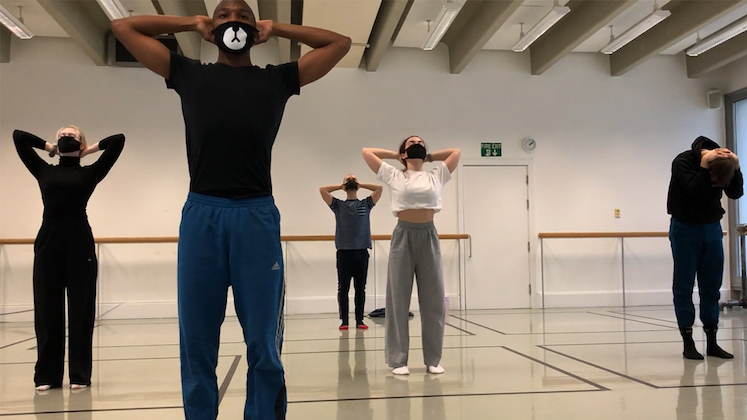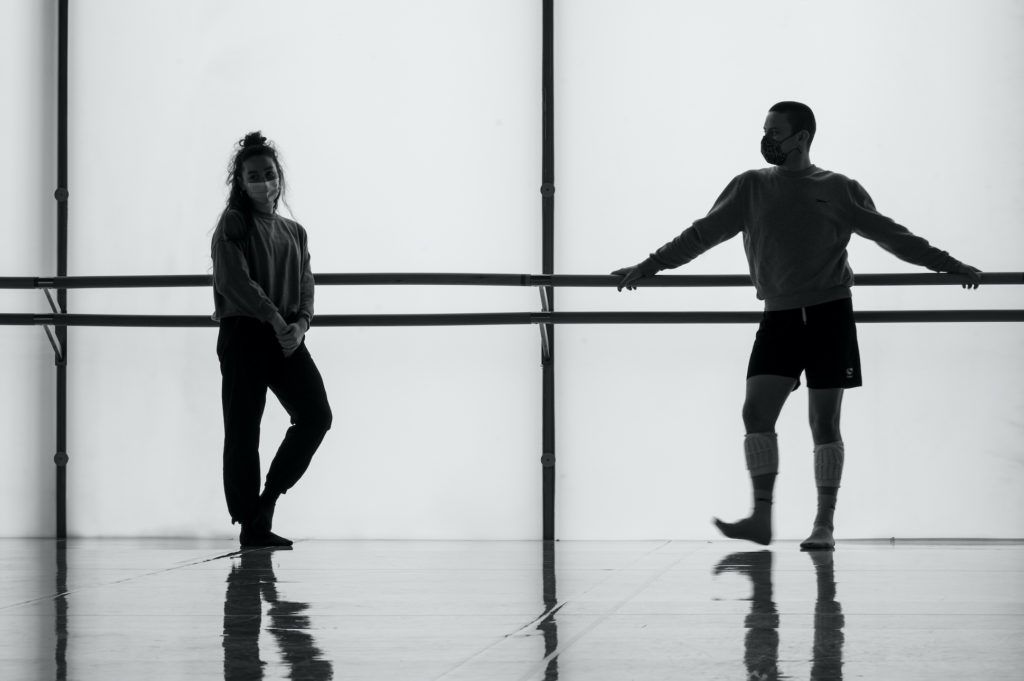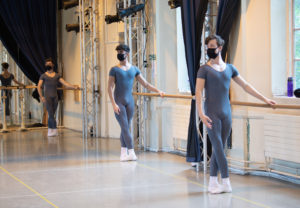
By Mia Lyndon
Audition processes that have existed for decades at dance schools have been redefined due to COVID-19. Over the past year, auditions have moved online, meaning homes have transformed into makeshift studios and applicants have performed to webcams.
Many applicants for 2021’s summer intensives and fall semesters will be asked to film themselves executing set combinations, which will be submitted to an audition panel for review. In the UK, several schools had planned to use recorded auditions only for preliminary rounds, with recalled applicants then invited to attend live, socially distanced finals. But with lockdowns lingering and travel largely banned, many have pushed their entire audition processes online. According to the English National Ballet School’s press manager Robert James, this is to ensure the school is as “fair as possible” by giving “everyone the same opportunity, including those international students still unable to travel.”

The pandemic has inspired London Contemporary Dance School (LCDS) to completely redefine its audition program. The school is no longer using the term “auditions,” due to the word’s association with the idea of “judging talent” that has been “riddled with inequalities,” according to Lise Uytterhoeven, director of Dance Studies at LCDS. The school is holding Admissions Workshops, during which students will be encouraged to “use their imagination to respond to creative challenges.” Such workshops take the shape of dance classes, creative tasks and group discussions.
LCDS’s newly evolved admissions process recognizes that creativity is paramount, and although “traditionally a technique class would have been the centre of focus, that is no longer the case,” according to Uytterhoeven. This year, there is an emphasis upon artistry, which has shaped many schools’ approach, so it is important that applicants are comfortable tapping into their creative voices during online auditions. Improvising movement at home as a regular practice can help with this, as it enables a dancer to explore their creative potential before preparing audition material.
With auditions moving online and studios left unfilled, free auditions are being offered by many for the first time. Yet while audition fees may have decreased, other expenses have swelled. Some students feel it necessary to invest in expensive equipment to capture their submissions, not wanting to risk being at a disadvantage due to poor technical quality.
However, Sara Matthews, director of Dance at Trinity Laban Conservatoire, said that applicants are encouraged to “use whatever equipment they have available to them, including mobile phones.” She understands that “applicants are unlikely to have access to high-quality technical equipment” and will have varying levels of proficiency in its use. Trinity Laban’s audition panel won’t “take the quality of the recording into consideration when assessing the auditions,” according to Matthews. Instead, the advice is to simply focus on making sure that the applicant’s whole body is visible throughout so that they can be seen from all angles.

While digital auditions have been an apt solution during the pandemic, it can’t be said that they are entirely successful. Auditioning for a school placement is a pivotal event within any dancer’s life — it’s an opportunity to face anxiety, utilize adrenaline and combat exhaustion. By moving auditions into the home and allowing students to hit delete whenever mistakes are made, such lessons are left unlearned.
Yet, on the plus side, filming your own audition is a skill in itself, one that is becoming increasingly valued within the industry. With their course titled Recorded Audition Preparation Day, this years’ applicants at Trinity Laban receive guidance ahead of submitting their recorded audition. Participants have benefitted from advice about how and where to record auditions, what equipment to use and how to record using a mobile phone. “Asking someone else to help record the audition tasks,” says Matthews, “takes off a bit of the pressure and helps the applicant focus on the tasks.” Even unsuccessful candidates will now walk away with some important skill development to bolster their next submission.
Of course, while local students may step back into the studio in the near future, many international applicants will continue auditioning remotely, as they have for years. For them, 2021’s innovations are likely here to stay.
Matthews says that Trinity Laban has “learned a lot from developing robust and supportive recorded audition processes.” The school, for example, recognizes that “the idea of a recorded audition can seem intimidating,” and has “made sure that each [audition] task only requires a maximum of a five-minute video.”
Are online audition processes here to stay? The answer is no, probably not. But the challenges of COVID-19 have inspired auditions increasingly built upon support and innovation, which will benefit dancers indefinitely. Auditions have progressed, and schools, panels and students have all proven their ability to flourish in adversity.
Mia Lyndon is the founder of Audition Quest (auditionquest.co.uk), an audition support platform for young dancers, and a freelance journalist.

